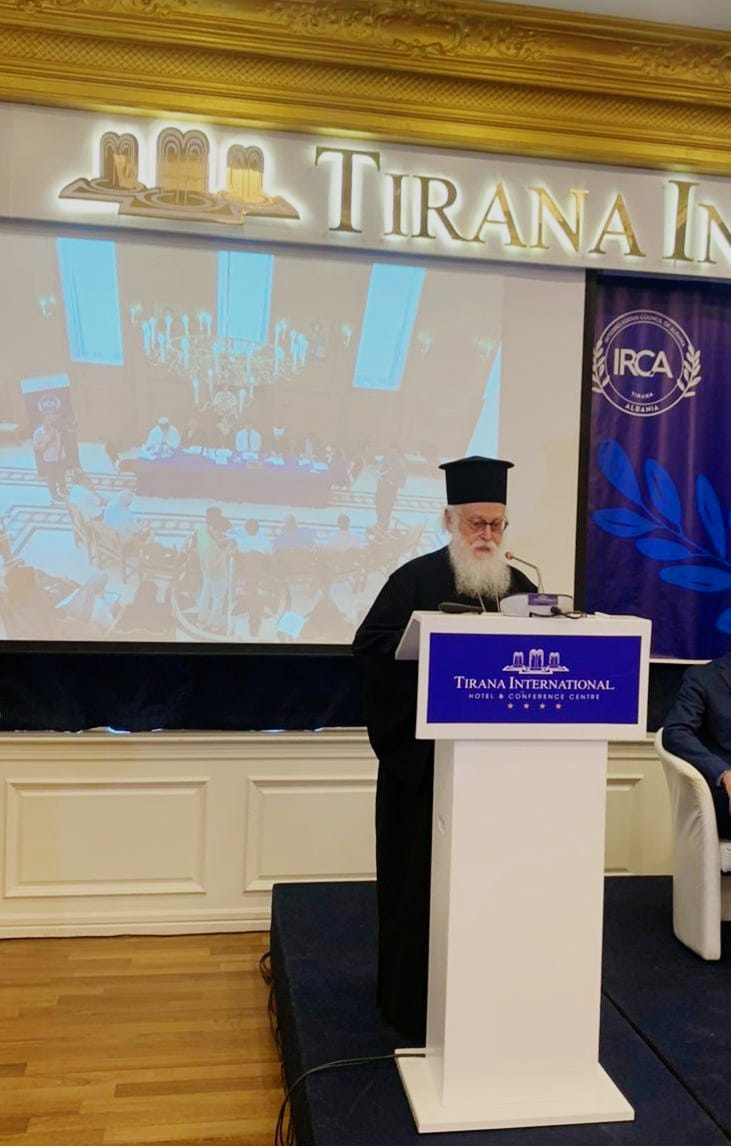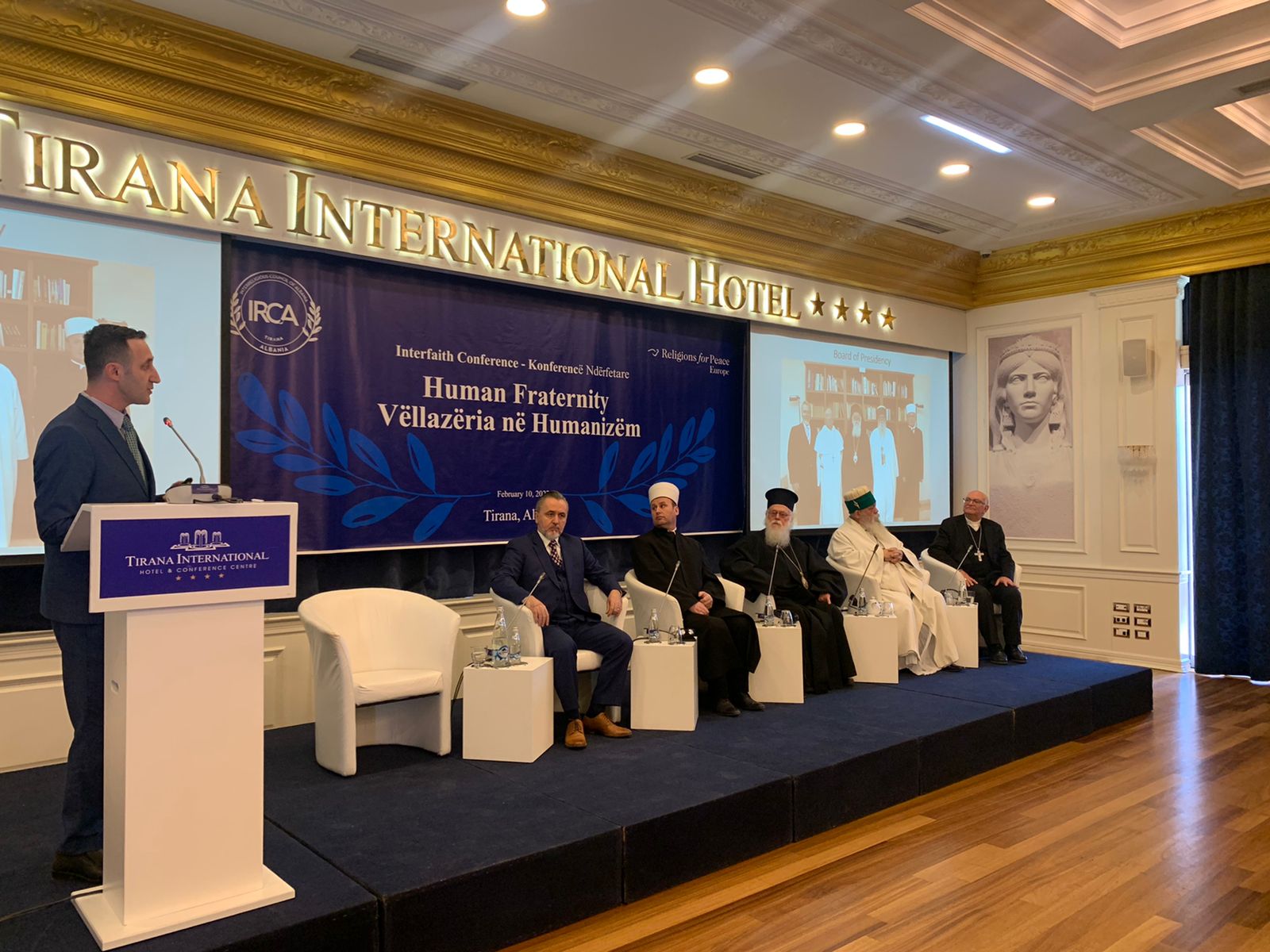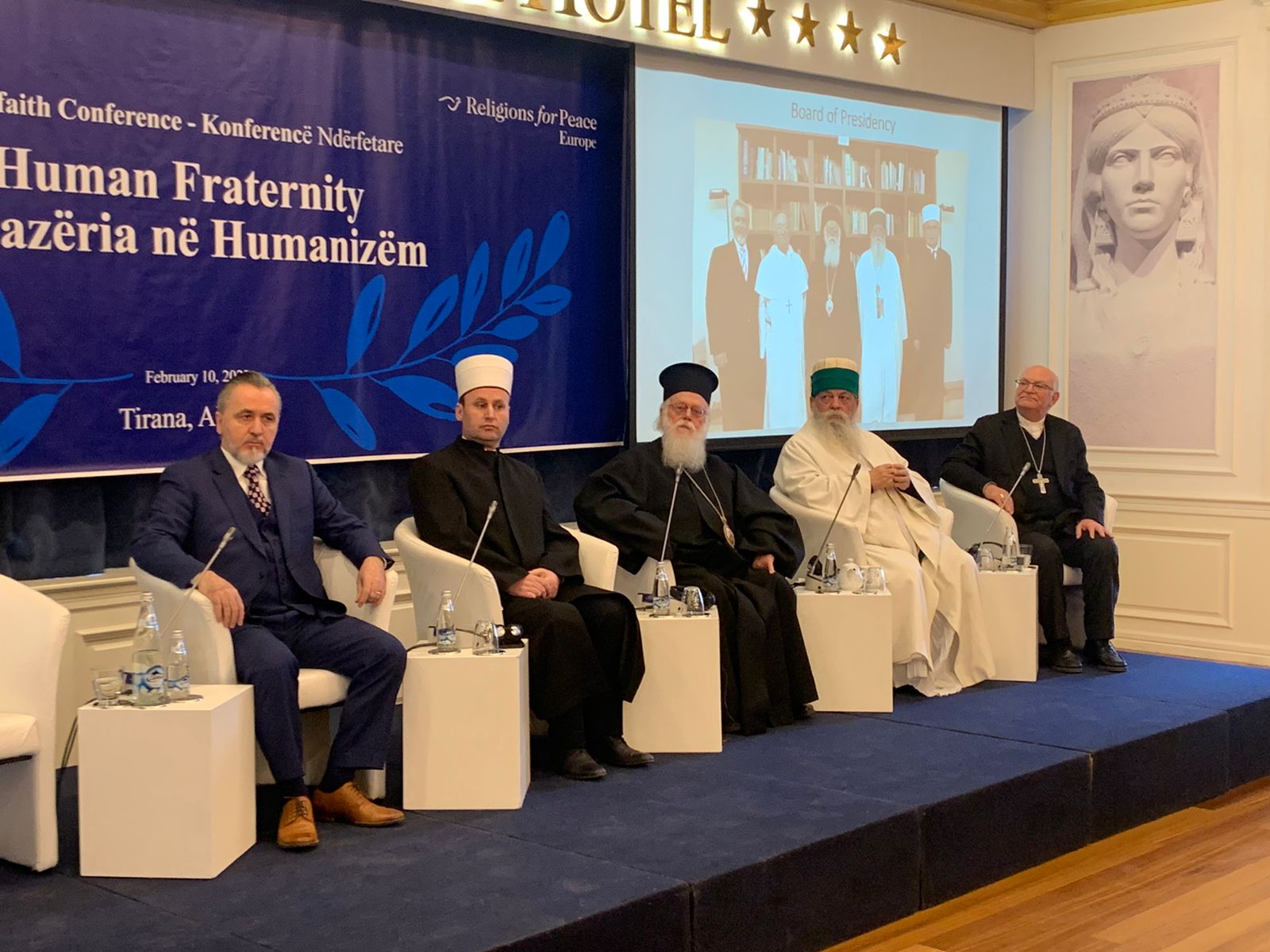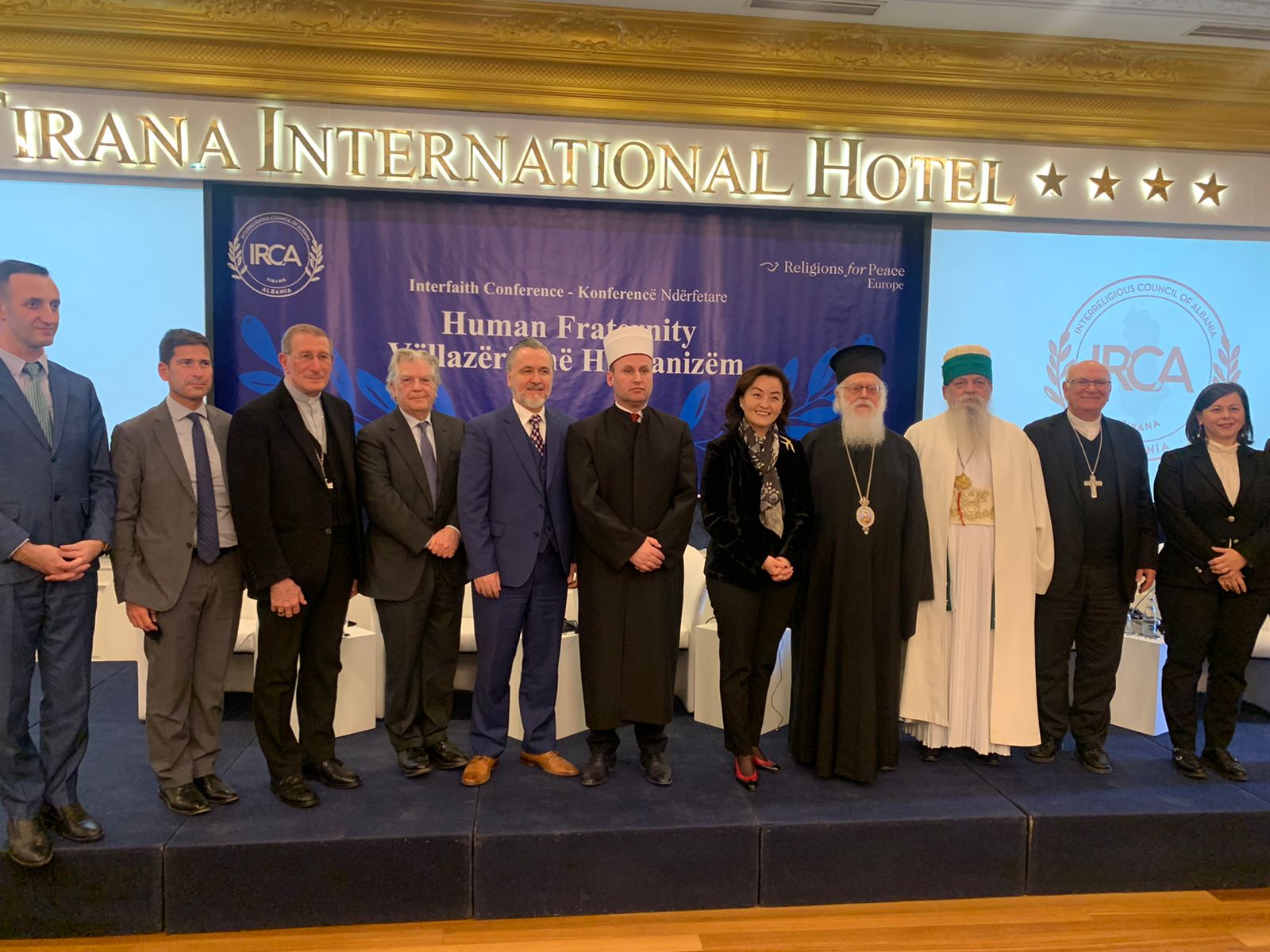Interfaith Conference - Interreligious Council of Albania

† Anastasios (Yannoulatos)
Archbishop of Tirana, Durres, and All Albania
Professor Emeritus of the University of Athens
Honorary Member of the Academy of Athens
After the end of the long atheistic persecution (1991), arose the necessity for the freedom of religion within a harmonious coexistence. As it is known, in Albania there are five religious communities. Many people remain completely indifferent to religion. The Christian-Muslim relations were initially based upon the assumption that in the pluralistic society of the country, where the old atheist intelligentsia maintained a strong presence and influence, the primary contribution of believers – Christians and Muslims – was to point out that religious faith has a vital role in a free democratic society. That religion is not a byproduct of the moral, rational, or emotional life of a society, but an independent and primary phenomenon, which is related to a special category: the Sacred, the Holy. That man is not independent in the universe and that the individual self-interest, the worship of money, pleasure, and power, cannot become the new idols, the only criteria for success in contemporary Albanian society. In particular, the dialogue between the religious communities was driven by the perception of the human being and the basic acceptance of his or her religious freedom.
*
As a short contribution towards todays theme, I would like to mention the basic human values accepted by all religions. During the 1990s, interfaith efforts toward formulating a global code of ethics intensified. Two of the best-known proposals are: A proposal from the Parliament of the World’s Religions and a proposal coordinated by the Center for Global Ethics. From the various interfaith quests over the last few decades, we may highlight the following human values as accepted by all religions in common:
a) The Common Origin of All People. The monotheistic religions assure their believers that God created the first human couple. Every human person, irrespective of race, gender, color, language, belief, and education, is endowed with the dignity of divine origin through his or her relationship with God.
b) The Golden Rule. A fundamental principle in almost all developed religions is the Golden Rule. That which is hateful to you do not do to another. In Christianity the rule is formulated in a positive manner: “Do to others as you would have them do to you” (Luke 6:31).
c) Respect for Life. Generally, religions prohibit killing. Nonetheless, the question of war remains a complex matter to which religions sometimes respond with diametrically opposed positions.
d) Justice and Integrity. Justice brings people closer to God.
e) Respect in Sexual Relations. Religions incorporate commandments or directives about conduct between couples and determine the need for respect in sexual relations.
f) Peace as a Goal. Most religions refer to peace as a wish or prayer, and as a duty or goal. Attaining peace involves the effort to control human aggression. It is also the struggle for inner peace, the curbing of inner passions, and the balance of fear and anxiety.
h) The Universal Dimensions of Love. Love is regarded as the culmination and summit of offering in the hierarchy of virtues. It is a universal force which embraces and transforms all things. In Christianity love is identified with the supreme reality, God: “God is love, and those who abide in love abide in God and God abides in them” (1 John 4:16).
*
Through the last decades in Albania all the religious communities in the country tried throughout periods of internal crisis to unite our voices and efforts for helping those in need. And generally, we emphasize that the concrete issues for creative dialogue of various religious communities are today: the protection of the environment, the alleviation of poverty, the reconciliation of peoples and nations, development, bioethics, and primarily the search for peace on the local and global level. We agreed not to permit fundamentalist ideas of extremist circles to influence the members of our communities. Our vision was not simply religious tolerance, but harmonious coexistence.
In this perspective we hope that the present conference will help us examine and understand more profoundly the common values which are related to the truth of Human Fraternity.


